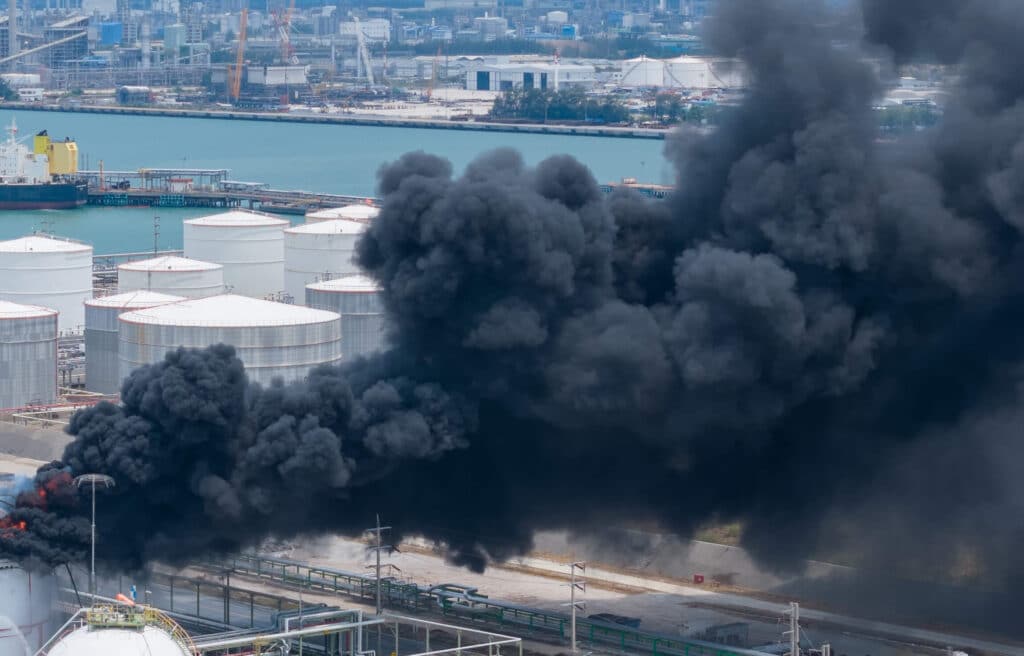Paul Novak, managing attorney of Weitz & Luxenberg’s Detroit office, last month joined a distinguished panel of attorneys from both sides of the “v” and a former U.S. Senator at the Sixteenth Annual Judicial Symposium on Civil Justice Issues. It was held October 9-11, 2022, in Arlington, Virginia. His panel’s topic was “Developments in Public Nuisance and Locality Litigation,” moderated by the Supreme Court of Ohio Chief Justice Maureen O’Connor.
Throughout the session, Mr. Novak shared his earned perspective after having litigated — for nearly the past five years — public nuisance opioid claims on behalf of cities and counties pursuing claims against opioid manufacturers, distributors, and dispensers, as well as a PFAS public nuisance action in West Michigan.
The panel evolved throughout the morning session from a passive academic presentation to an active discussion among panelists and audience members about the proper application of public nuisance law in confronting the national opioid epidemic. While former U.S. Senator and Alabama Attorney General Luther Strange contended that only State Attorneys General should have the ability to bring such claims, Mr. Novak disagreed.
Local Governments on the Front Lines
“Local governments are on the front lines of battling the opioid epidemic throughout this country,” said Mr. Novak, who leads Weitz & Luxenberg’s day-to-day work on behalf of 62 Michigan cities and counties that brought public nuisance claims in the national multidistrict litigation.
“They face innumerable challenges from serving as emergency first responders for overdose victims, to providing health and addiction treatment in community health settings, to facing exploding medical autopsy costs for those whose deaths should have been avoided,” Mr. Novak continued.
Ellen Relkin, chair of W&L’s Drug and Medical Device Litigation department, sits on the Executive Committee for the national opioid multidistrict litigation (MDL).
Local Governments Should Pursue Their Own Claims
“Having worked on the trial team for a recent successful opioids trial, it’s clear that, particularly in cities where the scope of a nuisance is wide and deep, local governments should be able to pursue their own claims,” Mr. Novak explained. “That’s not to say states won’t also have claims, but it’s important for all government entities to work together in finding resolution to best impact the lives of their residents.”
Mr. Novak, a former Michigan Assistant Attorney General, has led negotiations with the Michigan Attorney General’s office related to how funds obtained in the opioids litigation should be distributed among the state and its subdivisions.
About the Event
The Sixteenth Annual Judicial Symposium on Civil Justice Issues event was hosted by the Law & Economics Center at the Antonin Scalia Law School at George Mason University in Arlington, Virginia. Events and presentations also addressed these topics:
- Emerging Issues in Civil Justice.
- Emerging and Evergreen Issues in Class Actions.
- Judicial Gatekeeping and Developments Under Federal Rule 702 and in State Rules of Evidence Regarding Admissibility of Expert Testimony.
- What Can and Should Jurors Consider When Awarding Damages?
- What Information Should Flow to Juries? A Case Study in Drug Device Approvals and 510k Clearances.
- The Evolution of Third-Party Litigation Financing.
- Bankruptcy Law and Mass Tort Litigation Liabilities.
- The Economics and Law of Arbitration.


